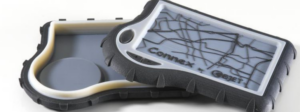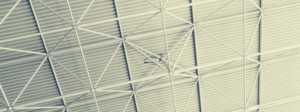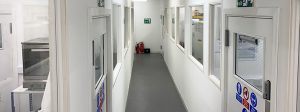- Home
- 3D Printing
- Polyjet 3D Printing
3D printing with PolyJet
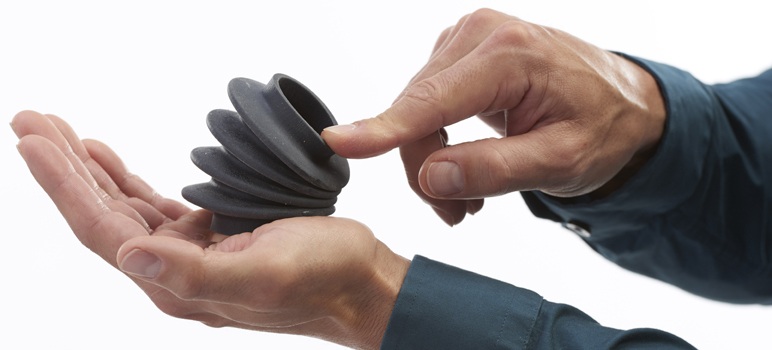
What is PolyJet 3D printing?
PolyJet is the name Stratasys uses for its multi-material 3D printing technology. Different materials can be printed simultaneously and materials can be combined to create ‘intermediate’ grades.
The technology is quick, versatile and cost-effective for producing aesthetically pleasing, detailed prototype parts. It is particularly useful for prototyping overmoulded parts.
What is the PolyJet build process?
PolyJet print heads spray droplets of light-curable photopolymer resins in a similar way to an inkjet printer. Parts are printed layer by layer from the bottom up, with droplets instantly cured and fused to the layer below by ultraviolet (UV) light. Where necessary, support structures are built to prevent distortion.
After 3D printing is complete, support structures are removed, the part is cleaned and any additional finishes applied.
When is PolyJet used for 3D printing?
PolyJet builds accurate parts with a good surface finish, typically for visual models, functional prototypes for testing, and sometimes production parts.
In most cases, we use PolyJet to simulate injection moulded or overmoulded parts.
PolyJet is widely used by product development teams in the automotive, aerospace, consumer goods, electronics and medical sectors.
PolyJet prototyping capabilities
Our PolyJet machine is a Stratasys Objet 260 Connex 3 multi-material 3D printer. Its triple-jetting technology can combine materials to build parts with a range of material properties and finishes.
Ultra-thin layers 16 microns thick equate to a Z-axis resolution of 1600 dpi, while resolution in the X and Y axes is 600 dpi. For features smaller than 50 mm, accuracy is 20-85 microns, whereas accuracy for full-size models is up to 200 microns. The maximum build size is 255 x 252 x 200 mm (XYZ).
Characteristics of PolyJet 3D printed parts
Polyjet 3D printed parts are accurate, detailed and have smooth surfaces. Because PolyJet prints in multiple materials, the stiffness, translucency and thermal resistance depend on the combination of materials. With harder grades, parts can be drilled, tapped, sanded and painted.
Material choices for PolyJet 3D printing
We stock a range of PolyJet 3D printing materials to meet customers’ needs. Base materials can be used on their own or combined with each other in specific concentrations and microstructures to create Digital materials. This enables us to produce parts that are rigid and opaque, transparent, similar to polypropylene, or rubber-like with Shore A hardnesses from 30 to 95.
Base materials:
- Vero White: White, relatively stiff and strong
- Agilus30: Black, elastomeric
- Vero Clear: Similar to Vero White but clear, can simulate acrylic
Digital materials:
- Elastomeric: Agilus30 with Vero White or Vero Clear, combined to give the required material properties
- Engineering plastics: Vero White or Vero Clear with Agilus30, combined to give the required material properties
For more information, see our PolyJet Materials Guide.
Finishing options for PolyJet 3D printed parts
After the build process has finished, support structures are removed and the part is washed in cleaning solution. If required, a blackout/EMI/RFI coating can be applied to internal surfaces and lacquer applied to seal surfaces. Sanding and painting can be carried out, as can electroless plating and metallisation. Optional assembly operations can be performed such as installing threaded inserts.
More information is provided on our Finishing options page.
Our latest Polyjet 3D Printing news
Talk to us
Whatever your requirements for Polyjet 3D printed parts, talk to us 01763 249760 or complete the enquiry form below to request a quote.
Model Making & Workshop team
Our model making and AP/AM workshop team deliver high-quality 3D printed and vacuum cast prototype parts. We offer next day dispatch on SLS, SLA, Polyjet and DLP. Request a quote for your next prototype project.

Gemma Zouher-Lewis
RP Team Leader

Jordan Cooney
RP Technician
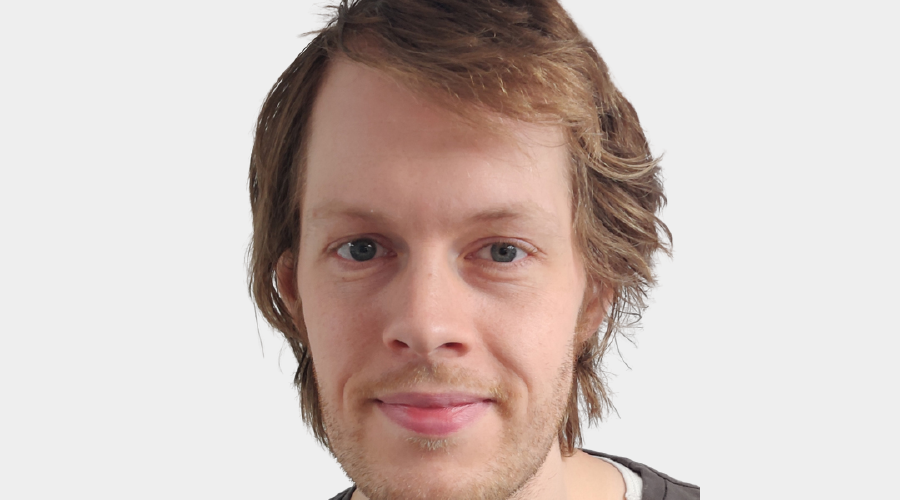
Nick Crown
RP Technician

Chris Johnson
RP Technician

Hemal Maisuria
RP Technician

Leon Willis
Workshop Assistant/Delivery Driver
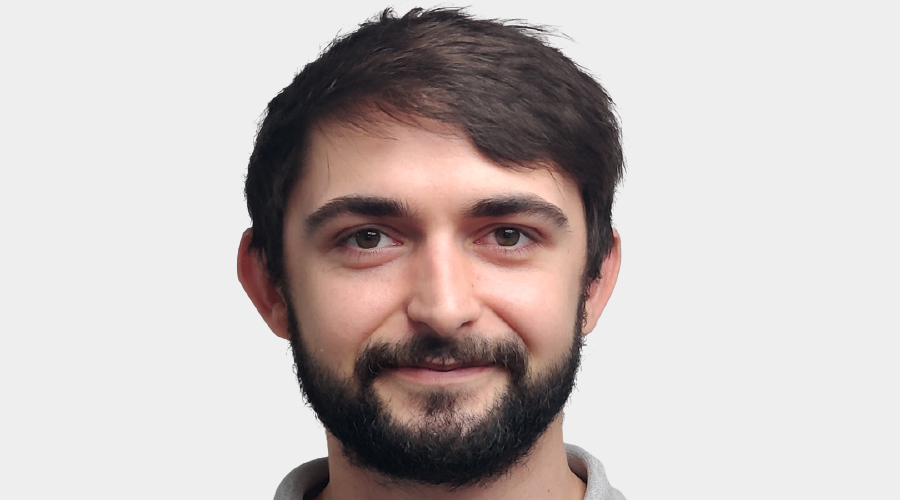
Adam Sharkey
3D Print Team Leader

Alex Barnett
Senior RP Technician

Jan Mlynarcik
3D Print CAD Technician

Luke Webb
RP 3D Printing CAD Technician

